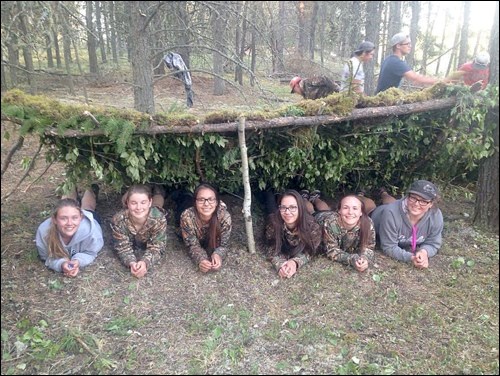Submitted
CUMBERLAND HOUSE – This fall, Saskatchewan teachers will have a new curriculum resource to shift learning beyond the classroom walls and out on to the land thanks to a new book published by a Cumberland House teacher and her students.
Muskrats and Fire was written by Renée Carrière in collaboration with Charlebois Community School students. The book provides a personal account of their research journey to discover “Where have all the muskrats gone?” and shows how Western and Indigenous science can work together within the kindergarten to Grade 12 curriculum.
“Science can be hard to grasp,” says lead researcher Carrière, whose daughter assisted the students with the book illustrations. “It’s important to create user-friendly ways of sharing place-based research that’s authentic and easy to understand. I would love to get this book into the hands of Saskatchewan teachers and for them to find it to be a valuable resource.”
Michela Carrière, who is well-known in the Cumberland House community as a horticulturalist, artist, actress and entrepreneur, says she’s proud of what she and the students created.
“Visuals help bring a story to life, but the best part of this project is the relationships that have been built and the skills the students can highlight on their resumés,” says Michela. “How many students can say they are published illustrators by the time they graduate? These students can.”
Muskrats and Fire is the culmination of a two-year research project entitled The Muskrat/Wuchusk Project. It was funded by the McDowell Foundation and saw the students exploring why their local muskrats were disappearing and what, if anything, could be done to bring them back. The students learned that reinstating Indigenous cultural wildfire practices in the spring restores the local ecosystem and keeps it healthy.
As a result, Carrière also developed a local wildland firefighting course called Iskotew 10/20. The course is for high school students in Grades 10 to 12 who want to be prepared to respond to community emergencies or who are interested in pursuing a career in firefighting. The course is endorsed by the Ministry of Education and the Northern Lights School Division. The Muskrat Project research is also now being shared with the federal government.
“It’s exciting to see real-life impacts of research on a community and students,” says Manager of the McDowell Foundation Ellen Whiteman. “This is why we fund teacher-led research. It’s amazing to see this work being supported by many partners and embraced by the local community. It’s equally exciting to see place-based research spreading beyond our province for the benefit of other communities.”
To purchase or download a copy of the book, visit www.mcdowellfoundation.ca > News & Events > Muskrats and Fire Book Now Available.
“I can’t say enough about the McDowell Foundation,” says Carrière. “This work has fundamentally changed me. To truly appreciate it, you have to experience it. I encourage other Saskatchewan teachers to get involved with the McDowell Foundation and to conduct their own classroom improvement projects.”



